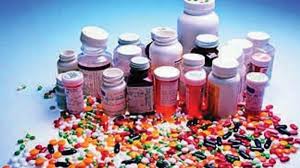Hyderabad: As the raids and inspections against ‘quackery’ become more rampant, with each day non-qualified practitioners being caught by the state Medical Council, the debate over whether Indian medicine practitioners can prescribe modern medicine continues unabated.
The Ayurveda, Unani and Siddha systems practitioners have stressed that their rights to practice certain elements of ‘modern medicine’ are backed by law, albeit undermined by confusion and inconsistent enforcement. The existing legal statutes allow them to practice Indian medicine “supplemented by modern advances,” but according to them, the Telangana government has blindly taken up certain provisions of the Clinical Establishments Act that do not take into account other governing laws.
Recently, the Telangana High Court also quashed a few cases booked against practitioners of Indian medicine, i.e. those with BAMS or BUMS degrees, by the medicine council, and gave the verdict in their favour, except that they cannot prescribe allopathic medicines.
While the court found some “procedural irregularities” on the part of the state medical council, it also observed that it needs to be examined as to what extent Indian medicine practitioners can practice modern medicine and which allopathic drugs they can prescribe, based on their training.
As per Dr Shaik Mohammed Aliuddin, a legal advisor and a practitioner of Indian medicine, the Rule 2(ee)(iii) of the Drugs and Cosmetics Rules provides a strong legal base, that has also allowed state governments to recognise Indian System of Medicine (ISM) practitioners as competent to prescribe modern drugs. However, the medical council only mentions the “Act” and not the “rules” that actually allow them these rights.
“There are three different systems of medicine in India governed by the National Medical Commission Act (for allopathic medicine), the National Commission for Indian System of Medicine (NCISM) Act and the National Commission for Homeopathy Act. All of them have their separate register of practitioners and separate governing bodies at both the national and state level,” he said.
“Many states have issued notifications that safeguard the rights of Indian medicine practitioners to practice modern medicine and prescribe certain drugs, citing the Supreme Court judgment in the Mukhtiar Chand case. There are statutory protections under the Indian Medicine Central Council Act, 1970, and the National Commission for Indian System of Medicine (NCISM) Act that also safeguard our privileges. Moreover, as per the NCISM Act, these rights cannot be taken away. In fact, the Commission can specify how modern advances can supplement ISM training,” he added.
Practitioners argue that their syllabus already includes modern pharmacology and clinical exposure. “The prescription of drugs is controlled by the Drugs and Cosmetics Act and its rules, and not by the state medical council. According to the Act, all other registered doctors can prescribe allopathic drugs, including analgesics and antibiotics. Courts have also said that our training and teaching include work in modern allopathic hospitals. But some states, including Telangana, have not yet issued enactments after adoption of laws such as the Clinical Establishments Act, and that creates problems. We know our boundaries. Don’t call us quacks — such words hurt the credibility of our systems, while the government itself is trying to promote Ayurveda and Unani globally,” said Dr Hasan Ahmed, former member of the Central Council for Indian Medicine.
However, limitations remain. Central statutes such as the Medical Termination of Pregnancy Rules exclude AYUSH doctors, defining a “registered medical practitioner” only in terms of MBBS qualifications. The NMC Act’s definitions also create uncertainty in areas such as obstetrics and surgery, even though their syllabus includes these aspects. Even as the NCISM framework protects practitioners against frivolous complaints by requiring authorised bodies to file cases, uneven state notifications leave doctors in some regions vulnerable.
The practitioners added that the Clinical Establishments Act also adds to the confusion, since AYUSH and allopathy differ in procedures and requirements. They point out that while modern systems rely on surgeries, ICUs and anaesthesia, Ayurveda is based on therapies such as Panchakarma. However, their training also includes surgical procedures to some extent.
“How can we do surgeries without anaesthesia or ICUs? Integration is the need of the hour, but real integration needs thorough planning, keeping in mind the existing laws and practices,” said Dr Zainulabedin Khan, President of Integrated Practitioners Association.
As the government pushes to globalise traditional medicine systems, as exemplified by the recent national level Ayurveda conference hosted in Hyderabad, where Union coal and mines minister Kishan Reddy presided as the chief guest, the ISM practitioners stressed that the goal should be collaborative, not adversarial.

